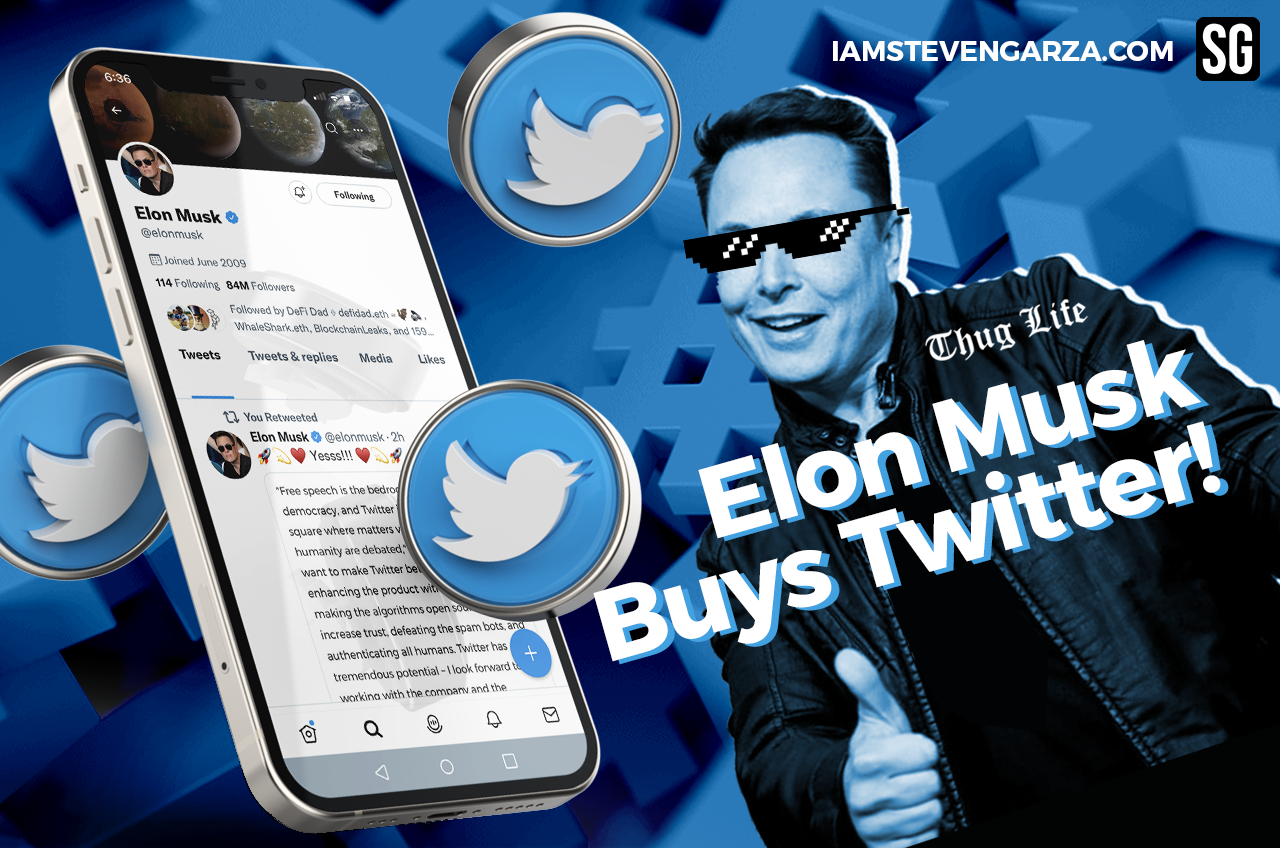Elon Musk Buys Twitter for $44 Billion! Will He Address Music Licencing Issues?

Elon Musk who is the CEO of Tesla, SpaceX, the current reigning Time’s Person of The Year, and the wealthiest person in the world has accomplished yet another milestone by becoming the owner of one of the world’s largest social media networks… Twitter, for a measly 44 billion dollars.
Elon sent his first tweet as the company’s new owner an hour ago with much excitement and a promise to make the platform better.
“Yesss!!!”
“Free speech is the bedrock of a functioning democracy, and Twitter is the digital town square where matters vital to the future of humanity are debated”.
Elon Musk
The takeover will mark one of the biggest acquisitions in tech history.
One can only hope that with Musk in control, Twitter does become a better place as we can all agree that the spambots are a real pain in the a**.
But one of the more important topics being raised is the fact that Twitter has not bothered to negotiate licensing deals with major labels and publishers since it was launched. Instead of paying for the music that is published on Twitter, the platform has relied on the protection of 1998’s Digital Millennium Copyright Act, a law that provides platforms with what’s known as “safe harbor” from their users’ copyright infringement as long as they respond to takedown notices within a certain window, which in this time and day some say is simply irresponsible.
The announcement of Twitter’s new owner provided a window for industry advocacy groups to offer a gentle wave in the direction of the negotiating table.
“It’s past time to fix Twitter’s broken policy of not paying songwriters,”
National Music Publishers’ Association president and CEO David Israelite
Israelite told Billboard Magazine in a statement.
“Our hope is that under new ownership, Elon Musk — a creator himself — recognizes the necessity in paying music creators and takes this opportunity to work with the music industry, instead of against it.”
To be fair, however, Twitter is not always the first company that comes to mind in conversations about music piracy. That’s because people don’t think about it as a music platform.
Still, there’s a perception in the music industry that Twitter has been stubbornly unwilling to play nice relative to other tech companies and social media platforms. “Unlike Facebook and unlike YouTube, they have done nothing to try to at least build tools or help prevent what is by its nature a viral system where piracy can spread literally in microseconds,” RIAA chairman and CEO Mitch Glazier told the Senate Subcommittee on Intellectual Property in 2020. (The RIAA declined to comment for this story.)
“Twitter has tremendous potential,” Musk added in a tweet, “and I look forward to working with the company and the community of users to unlock it.” Whether he’s interested in working with the music business remains to be seen.
I don’t know about you but I have a feeling that Twitter is about to get a little more interesting with Musk at the reins.
